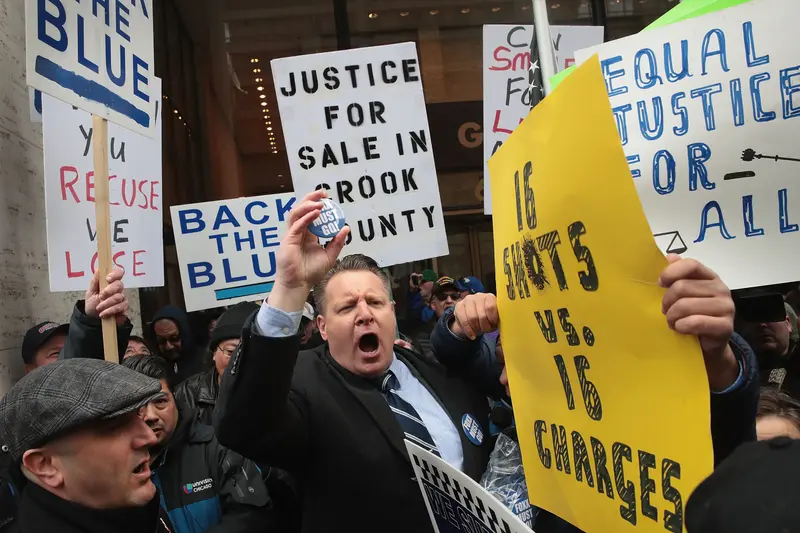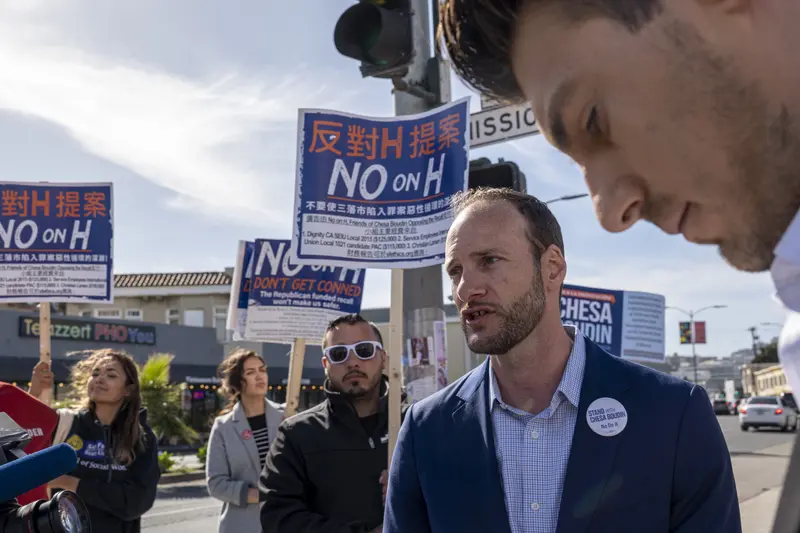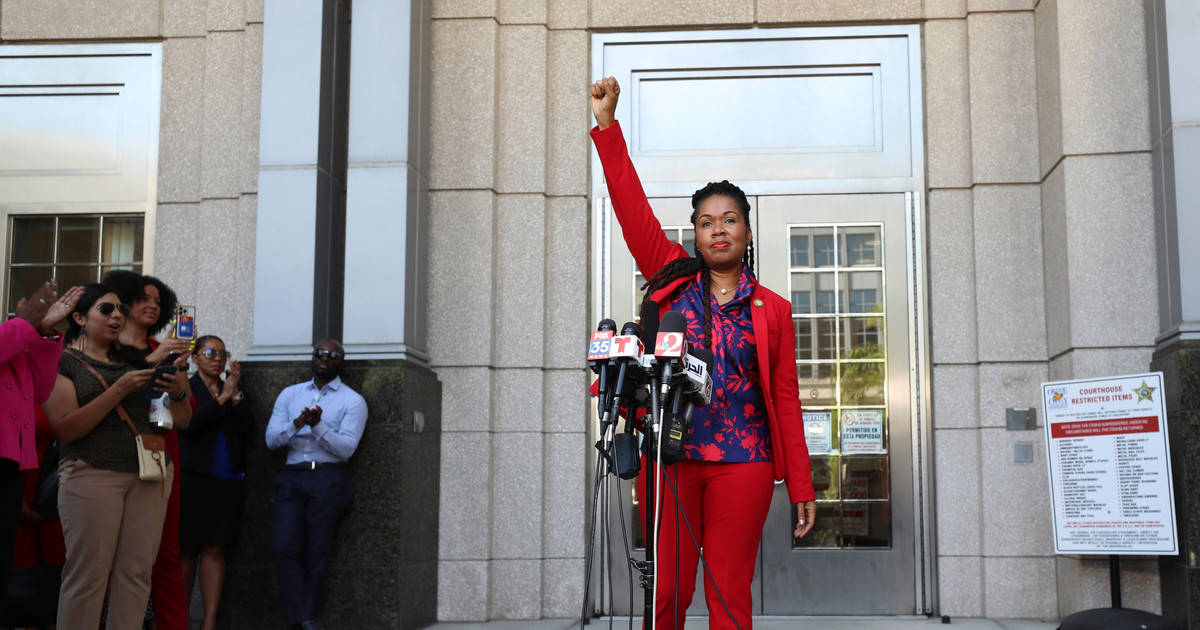
Police Resistance and Politics Undercut the Authority of Prosecutors Trying to Reform the Justice System
After major American cities began electing prosecutors who campaigned on the promise of systemic reform, law enforcement unions labeled these DAs as soft on crime while lawmakers made legal and legislative efforts to remove them from office.
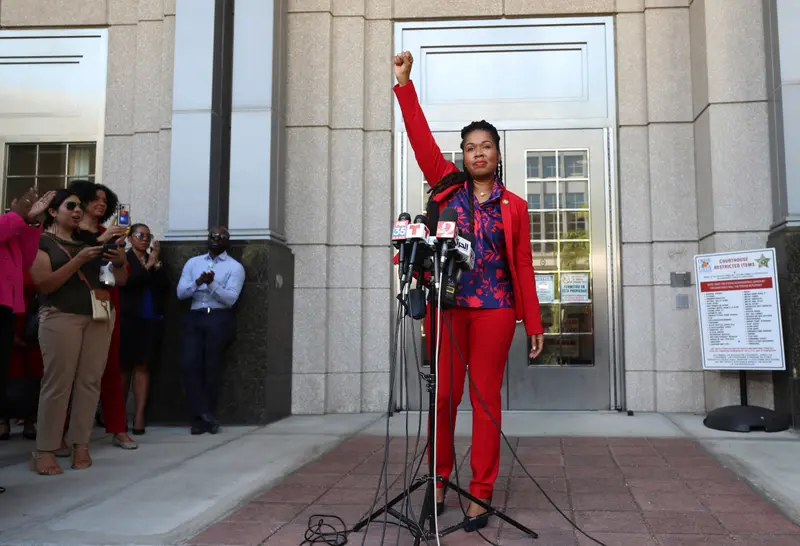
Monique Worrell speaks at a press conference after Florida Gov. Ron DeSantis suspended her from her job as a state attorney. Credit:Ricardo Ramirez Buxeda/Orlando Sentinel/Tribune News Service via Getty Images
Criminal Justice
Police Resistance and Politics Undercut the Authority of Prosecutors Trying to Reform the Justice System
After major American cities began electing prosecutors who campaigned on the promise of systemic reform, law enforcement unions labeled these DAs as soft on crime while lawmakers made legal and legislative efforts to remove them from office.
by Jeremy Kohler
Oct. 11, 6 a.m. EDT
Co-published with Riverfront Times
ProPublica is a nonprofit newsroom that investigates abuses of power. Sign up to receive our biggest stories as soon as they’re published.
After the 2014 fatal police shooting of Michael Brown in Ferguson, Missouri, and the months of protests that followed, the city of St. Louis was forced to reckon with its Black residents’ longstanding distrust of its police and courts.
Kim Gardner emerged as a voice for change. A lifelong resident of St. Louis, she had diverse professional experiences, having worked as a funeral director, a nurse, a lawyer and a state legislator. When campaigning for circuit attorney, the city’s top prosecutor, she focused on the disproportionate frequency of arrests and police officers using force against St. Louis’ Black community.
Investigative Journalism and News in the Public Interest
Get Our Top Investigations
Subscribe to the Big Story newsletter.
Email address:
“We need to change decades of old practices that left many in our community distrustful of the criminal justice system as a whole,” she told The St. Louis American, the city’s Black newspaper, just days before her decisive primary victory in August 2016 that all but sealed her general election win.
In the last decade, prosecutors in other major American cities also campaigned on promises of systemic reform: Kim Foxx in Chicago, Larry Krasner in Philadelphia, Chesa Boudin in San Francisco.
Yet, much like Gardner, these prosecutors have faced resistance from the police and the unions that represent rank-and-file officers. They’ve been accused of being soft on crime and have even been met with political maneuvers aimed at derailing their initiatives. Several have been targeted by efforts to remove them from office or pare away their powers.
Boudin lost a recall vote and was removed in June 2022. And Krasner, criticized for his reduced emphasis on prosecuting minor crimes, was impeached by the state legislature in November, although a state court threw out the result.
In Florida, Gov. Ron DeSantis has removed elected prosecutors in Tampa and Orlando. He suspended Hillsborough County State Attorney Andrew Warren over Warren’s refusal to prosecute offenses related to abortion and gender-related health care. He suspended the state attorney for Orange and Osceola counties, Monique Worrell, because he said she wasn’t tough enough on some serious offenses.
Georgia recently became the first state to establish a commission with the authority to discipline and even remove local elected prosecutors. Republican Gov. Brian Kemp framed the law as a way to check “far-left prosecutors.”
Gardner, who was reelected in 2020, stepped down in May of 2023 while facing both a lawsuit from the state attorney general that sought her removal and a separate attempt by the Republican-led legislature to curtail her authority. Gardner’s mismanagement of her office played a significant role in her downfall. Reform-minded lawyers who she personally hired had departed. And while judges fumed about prosecutors failing to show up for court, Gardner was moonlighting as a nursing student.
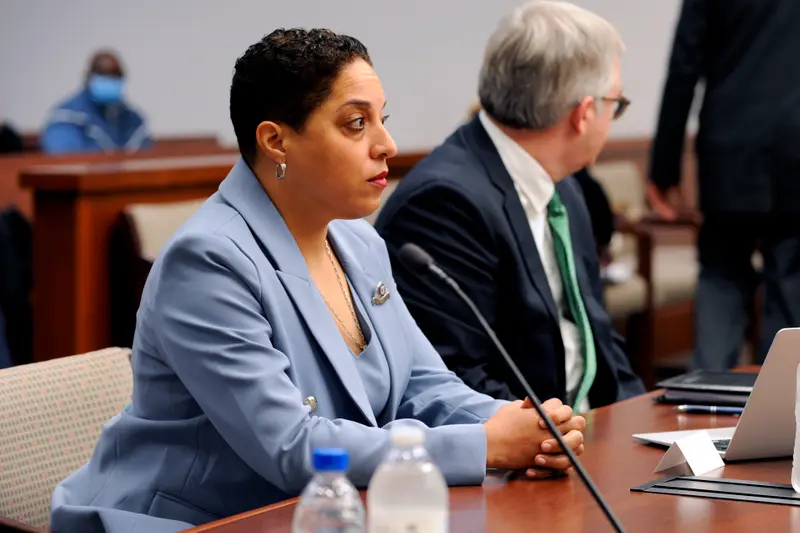
Though other prosecutors faced various challenges, there are no widely known instances like that of retired detective Roger Murphey in St. Louis, who has refused to testify in at least nine murder cases and hasn’t received any departmental discipline.
“For every progressive prosecutor who’s managed to stick it out, there’s one who’s either been recalled or driven out,” said Lara Bazelon, a University of San Francisco law school professor who volunteered on Boudin’s campaign and serves as chair of the commission he created to review inmates’ claims of innocence. “So it’s a real mix of success and cautionary tales.”
She added: “If the police are against you, or literally out to get you, you’re probably not going to be able to last in that job.”
Foxx, elected in 2016 and reelected in 2020, announced in April that she will not seek a third term next year, though she said it was not because of resistance from the police. In an interview, Foxx said that even before she took office, the Chicago police union felt threatened by her assertion that Black lives matter and that the criminal justice system could be more fair, particularly to communities of color.
It was a signal, she said, “that I was not one of them.”
“The reality is we were offering something very different to what was traditionally viewed as the law-and-order approach to prosecution,” Foxx said. “I think it was surprising to folks that prosecutors could be elected addressing these issues.”
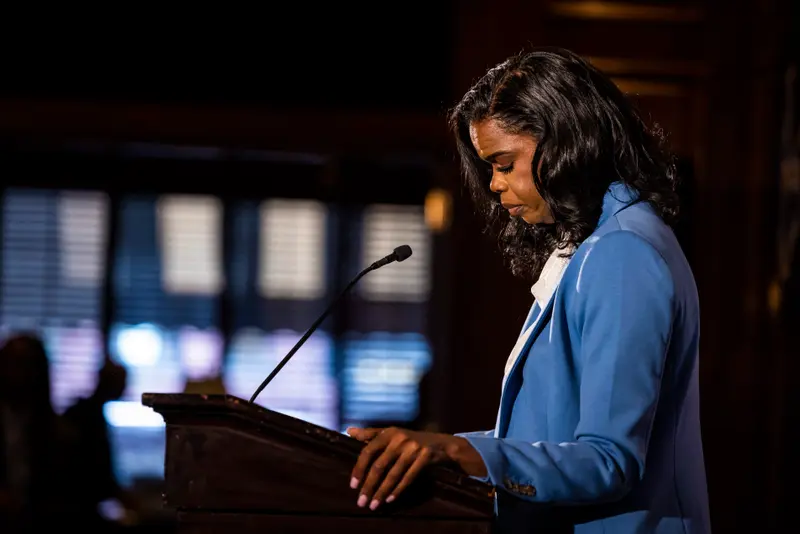
R. Michael Cassidy, a law professor at Boston College and an expert in prosecutorial ethics, said the Ferguson unrest emphasized the need for change in how police and prosecutors work. He said some prosecutors have failed to manage their relationships with police; prosecutors depend on the officers to bring them cases and to testify in court, but they must conduct oversight of the police as well.
Foxx pushed back against any assertion that she didn’t manage her relationship with police. She pointed to a popular Chicago police blog that often refers to her as “Crimesha” — “a play on the word ‘crime’ and what I believe to be a racist insinuation about me being Black with the name ‘-esha.’” The blog has also sexualized her last name by adding a third X and has insinuated that members of her family are connected to gangs.
“From the moment we came into office, we reached out to our partners in law enforcement, and what we saw was there was a segment of them who were never going to be satisfied with me in this role because I said ‘Black lives matter,’ because I said ‘We need police accountability,’ because I said that we had a criminal justice system that overly relied on incarceration that targeted Black and brown communities,” she said.
She said that she, Gardner and other prosecutors “have been faced with an unprecedented level of hate and vitriol” from the police.
“That,” she said, “is the story.”
